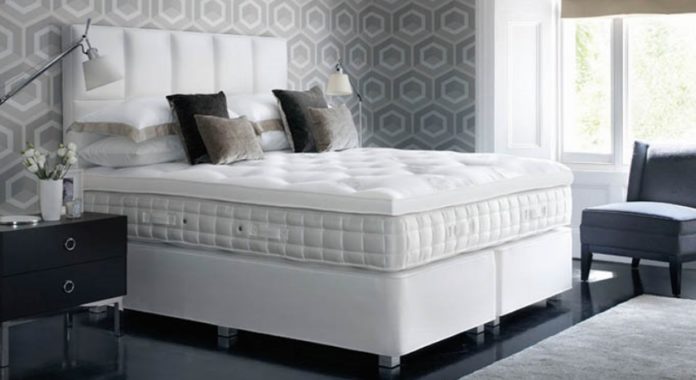Just as people say breakfast is the most important meal of the day, so too is a good nights rest the best way to propel you into an active and productive day. In fact, poor sleeping patterns can affect your concentration, immune system, creativity and sociability, and present a myriad of other issues symptomatic of a lack of sleep. There’s absolutely no way to be your best self when you’re crawling out of bed after a hot, restless night like a curmudgeonly troll with an aching back. Although it’s not the only factor that aids a good night’s rest, a supportive mattress will act as a foundation for restful sleep, so when purchasing one, it’s important to understand what options are out there.
Futon
Pros:
- Affordable – Popular for students, as they’re often the most affordable option on the market. Prices can be viewed here.
- Hypoallergenic – They’re typically made from natural fibres.
- Temperature controlled – They don’t retain a lot of heat, thus keeping you cool overnight.
Cons:
- Air Out – This is caused by either having a slatted bedframe or rolling up the mattress after use.
- Hard – People more used to a foam or spring mattress may find futons uncomfortably firm at first. This can be beneficial as the firmness provides support to the spine.
- Clumping – Over time the cotton/wool filling may clump in poorer quality futons, requiring replacement.
Spring Mattress
Pros:
- Price – It can vary considerably, but you can purchase spring mattresses from as low as $99.
- Air circulation – Spring mattresses allow heat to dispel from your body and will prevent you from overheating in the summer.
- Customizable – Spring mattresses are manufactured in various levels of firmness, ranging from very soft to ultra firm.
- Ready to use – There’s no wear-in period, as the springs instantly form around the body.
Cons:
- Lack of support – Although they may seem comfortable, they provide the least amount of support to your back, hips and shoulders.
- Integrity – Although some may come with a 10-year warrantee, they may begin to sag after a couple of years of use.
Memory Foam
Pros:
- Support – The biggest benefit to memory foam is that it’s highly supportive and becomes increasingly so over time.
- Stable – The foam won’t cause you to jiggle about when you move about in the bed.
- Hypoallergenic- Due to being solid foam, no dust or mites can accumulate in the mattress, making it a good option for people with asthma and other medical conditions.
Cons:
- Heat retention – Memory foam retains body heat, as it requires heat to mould. For those who are temperature sensitive, this could lead to restless, sweaty nights.
- Grace period – It takes time to tailor around the body and will not be as comfortable right away.
- Price – These are the most expensive mattresses on the market.
- Smell – Some people find the smell of memory foam off-putting to sleep on. Though the smell will eventually dissipate, it may take some time.


![5 Reasons You Should Travel Alone Airplane [image source: chau nguyen/ http://thedevilhatessweatpants.blogspot.com.au ], crowd ink, crowdink, crowdink.com, crowdink.com.au](https://crowdink.com/wp-content/uploads/2016/08/Chau-airplane-218x150.jpg)





























